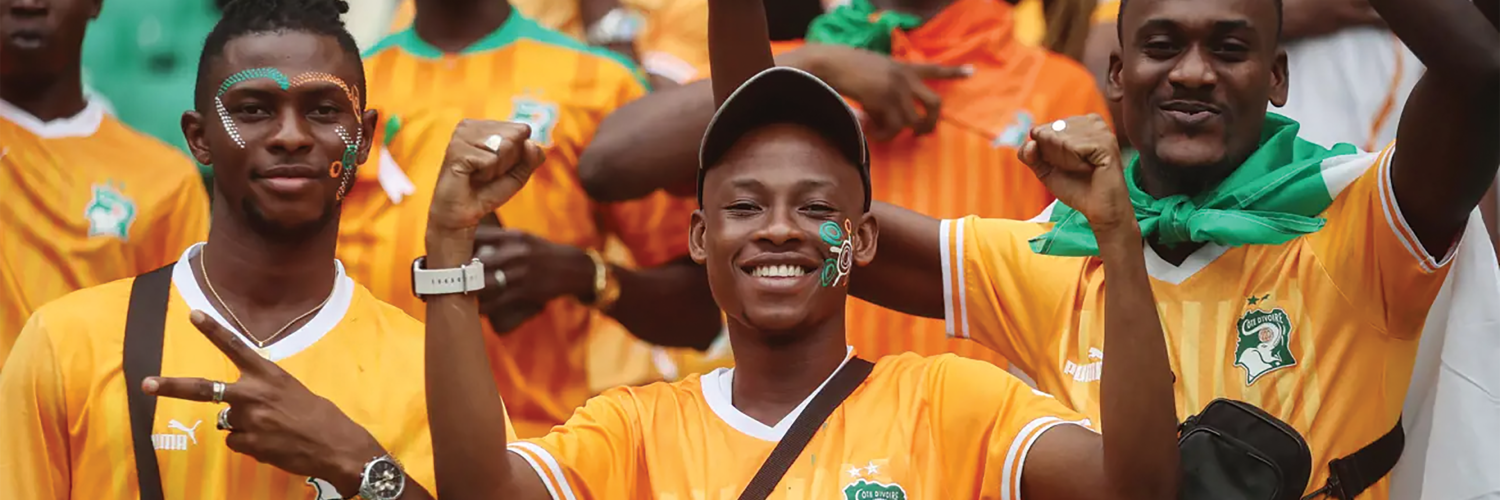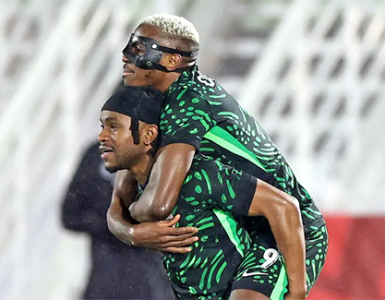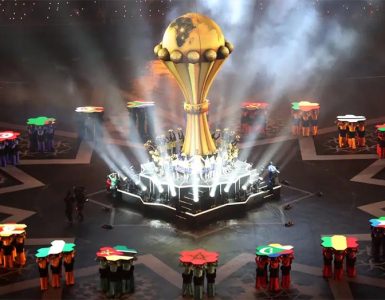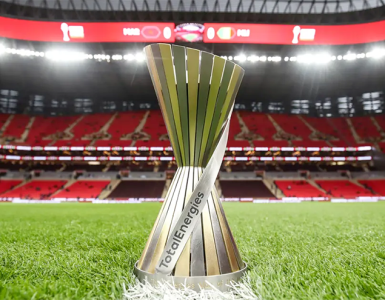NATIONAL: The party in Abidjan is one that the whole continent is invited to.
By Alasdair Howorth
 Abidjan is an orange city. Taxi cabs are orange, gbakas—the minibuses found throughout the city and the country—are orange, buildings are orange, and the soil underneath Abidjan’s façade of vegetation and concrete is orange.
Abidjan is an orange city. Taxi cabs are orange, gbakas—the minibuses found throughout the city and the country—are orange, buildings are orange, and the soil underneath Abidjan’s façade of vegetation and concrete is orange.
Even the people are orange. Be it in the markets of Abobo, the tight streets of Treichville, or the grand expressways cutting through Cocody, everywhere you walk at least one in four people is wearing the bright orange kit of the national team, and on match days that number is closer to three in four.
The Stade Félix-Houphouët-Boigny, situated in the heart of Abidjan’s plateau and the traditional home of Ivorian football, is like a ray of orange sunshine on the waters of the Atlantic.
On those match days, Abidjan is less city and more festival. Thousands of fans pack the streets donning Ivorian flags, blowing whistles, and the iconic vuvuzelas that have become synonymous with football in Africa.
Others armed with Ivorian ice creams and sodas pack themselves into colourful fan zones where DJs backtrack a party, before and after kick-off. If dancing isn’t your thing, no worries. There are tables set up everywhere in the parks and streets, often accompanied by stalls and grills selling fish, chicken, alloco (fried plantain), and the staple of Ivorian food, attiéké (grated fermented cassava).
And it is not only Ivorians. As Senegal cruised past a lacklustre Cameroon in Yamoussoukro, 250km away in the Treichville neighbourhood of Abidjan, hundreds of Senegalese fans watched in one fanpark situated in the middle of a roundabout.
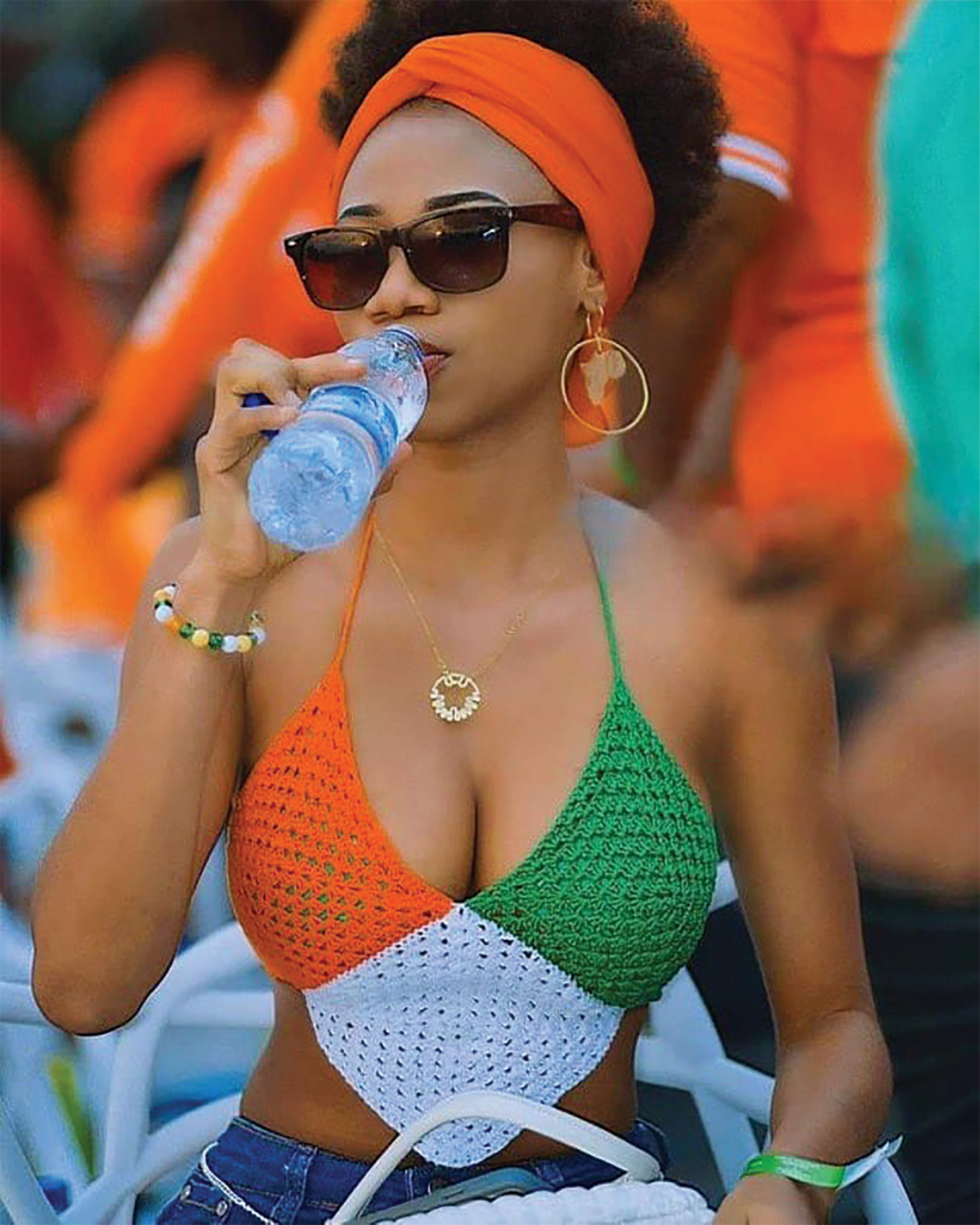 After the Senegalese party on the pitch finished, the one in Treichville kicked off, as the sounds of Senegal were brought to the heart of Côte d’Ivoire. When the dancing was finished and the Senegal fans ran into the night they were replaced by a stream of Guineans.
After the Senegalese party on the pitch finished, the one in Treichville kicked off, as the sounds of Senegal were brought to the heart of Côte d’Ivoire. When the dancing was finished and the Senegal fans ran into the night they were replaced by a stream of Guineans.
At the opening ceremony of the competition, CAF President Dr Patrice Motsepe boldly claimed that this would be, “the best AFCON in the history of African football.”
While it’s hard to take that seriously as he has made the same claim about virtually every competition he’s presided over, it’s one hard to argue with when you walk around the streets of Abidjan.
What makes Côte d’Ivoire unique from other countries that have hosted the competition in recent years is its proximity to other nations. Four of Côte d’Ivoire’s five neighbouring countries are playing at the tournament and 10 of the 23 travelling nations are within 1 500km of its borders.
Abidjan is also a cosmopolitan city. Since the end of the civil war, Côte d’Ivoire has seen unprecedented economic growth, thanks in large part to the port in Abidjan. That growth has brought many migrants from surrounding Francophone countries to Abidjan.
Like other African nations, many families here identify culturally with pre-nation-state cultural boundaries. It feels like it is impossible to speak to an Ivorian who doesn’t have relatives in Mali, Guinea, Burkina Faso, or Ghana.
And it shows in the teams they support. Fans seem comfortable wearing an Ivorian top one day while cheering on Sekou Fofana, then donning a Senegalese top to cheer on Sadio Mane the day after. The party in Abidjan is one that the whole continent is invited to. While there is banter between fans of different nations, most of these rivalries are good-natured, almost familial.
While fan zones, street-side televisions, and bars have struggled to contain the numbers, inside the stadiums it’s a different story where empty seats have an almost eerily strong presence.
In the opening match between Côte d’Ivoire and Guinea-Bissau, the official attendance was 36 858 despite the Alassane Ouattara Stadium having a capacity of 60 000. The next day Nigeria’s opener against Equatorial Guinea in the same stadium was attended by less than 10 000 spectators. Both games were officially sold out.
A similar story was seen in Yamoussoukro where fans from both Senegal and Guinea were left frustrated as they couldn’t get tickets at the Charles Konan Banny Stadium despite it being only half full.
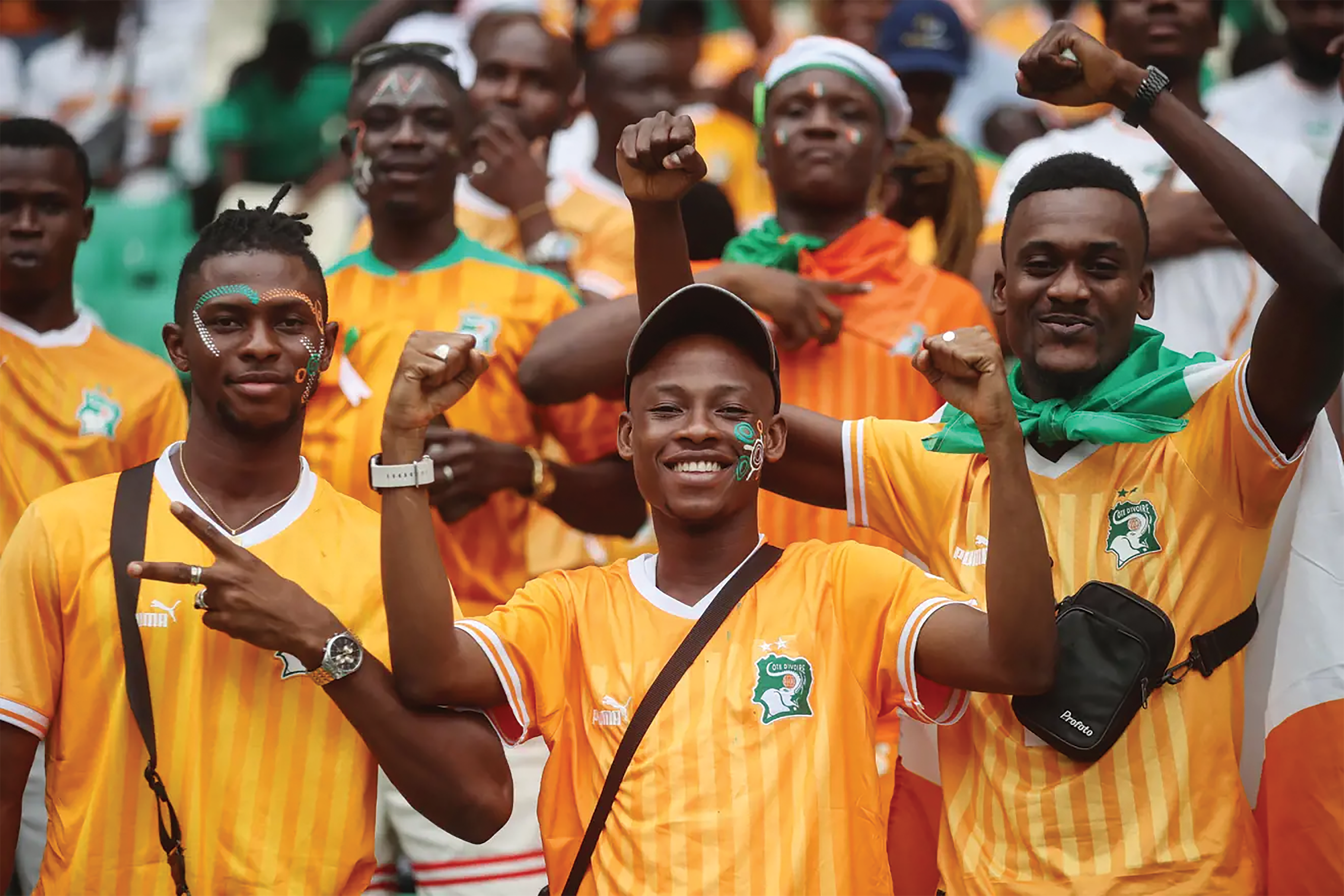
In a statement CAF blamed the ticketing issues on “printing issues” but others have pointed to individuals and agencies buying tickets in bulk before reselling at extortionate prices, something which would explain CAF’s claim that many of these nearly empty stadiums have been “sold out.”
Tickets themselves are not unreasonably priced with the cheapest tickets at matches ranging from 1 000 CFA ($1.70 or R32) to 10 000 CFA (R320), but once tickets are being resold on the black market or from third parties the prices skyrocket from 40 000 CFA (R1 280) to more than 100 000 CFA (R3 200).
The problem was so bad that Prime Minister Robert Beugré Mambé got involved saying that “you will see results within 48 hours.” And to the Ivorian government’s credit, crowd numbers have been up since. In the Elephants’ second group game against Nigeria the official attendance was up to 49 517 and in truth it was hard to see any empty seats about 30 minutes into the match.
In Bouaké, Côte d’Ivoire’s second-largest city, more than 30 000 Burkinabes witnessed the Stallions’ draw with Algeria while thousands more watched anxiously in the streets of Abidjan.
The Elephants did their best to dampen that party. When the team capitulated against Equatorial Guinea the party quickly turned sour. Within two hours the city went from partying to rioting, fan zones that were previously bouncing with music, were now thrown into chaos as fans destroyed chairs, broke tables, and wailed in horror at what they had seen.
Another two hours later the streets were empty, traffic gone, and the general hum of the city quickly dissipated. The next few days were more akin to a funeral than a festival, with orange being replaced by grey. Even the heavens wept as rain clouds replaced the blue sky that had been present up to that time. But as all parties often lull and need to be revived, so was the Ivorian national spirit when Morocco beat Zambia in the final game of the group stage, which secured the home nation’s passage to the round of 16 where they will face champions Senegal.
Such is the passion of football followers in the country that one could have been forgiven for thinking that they had won the tournament and not simply seen another team triumph.
Flares were lit, fireworks let loose, and Ivorian shirts—and no shortage of Moroccan ones—flags, and paint once again donned to restart the party that had taken a three-day hiatus.
As Cisse, a Burkinabe/Ivorian restaurant manager put it to me, “They’re sad now, but it won’t last. These Ivorians love to party too much.”
Abidjan only briefly lost its colour, but with the nation’s escape from elimination, it is orange again.
- Alasdair Howorth is a African football writer and broadcaster. He spends most of his time writing and producing the On The Whistle Podcast and Newsletter. Africa Is a Country is a site of opinion, analysis, and new writing on and from the African left.

